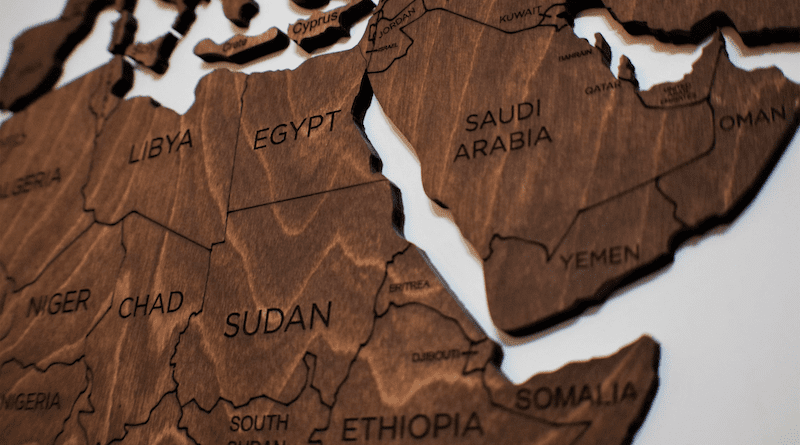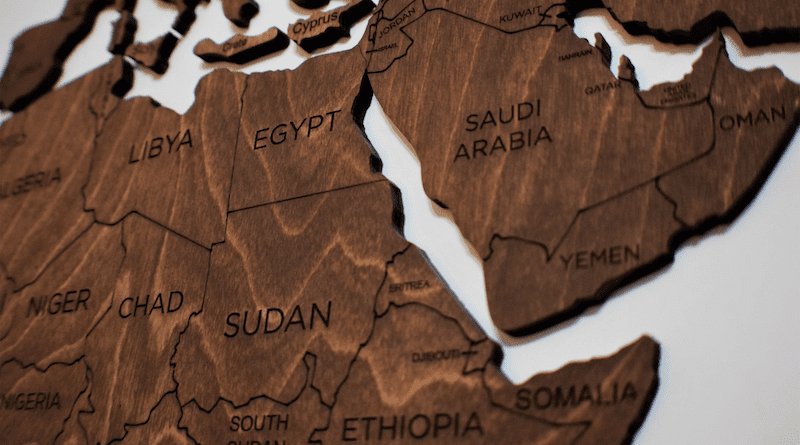

After all the wars and horrors thereof and more particularly the Second World War between the years 1939 to 1945, which saw the holocaust and the use of atomic bombs for the first time in human warfare, there was a real need to create a new organization to safeguard international peace and security and prevent such horrors ever happening again. The United Nations Organization or the UN in short was thus created, but ever since, however, greedy nations have always caused conflicts, and the world is never at peace.
There are always wars and conflicts in a part of the world or another. The irony of the matter is that many of those wars are actually caused by the very founders of the UN, disrespecting the very rules they put in place to prevent conflicts and horrible wars.
Millions have died since World War II in various parts of the world as a result of wars that could have been prevented should the nations of the world respected the international conventions and laws they put in place in the first place. Many such wars are going on at the time of this writing and others are brewing.
The key purposes of the UN include maintenance of peace and security, development of friendly relations among nations, cooperation of nations in solving international issues and harmonizing the actions of nations in order to achieve these goals.
The most important elements of its rules, in this regard, include among others prevention of nations aggressing each other, nations expanding territorially at the expense of other nations, freedom of trade and of course access to seas for landlocked countries through rule-based systems.
Ethiopia is one such country, which is a founding country of the UN, which is currently involved in expanding territorially into Somalia through pressuring one of its provinces, which is at present not in good terms with the center, to have access to the Gulf of Aden. It knows that the Somali State has not been at ease lately and not in peace for many years now, although the nation is the most homogenous of African countries. Ethiopia is working to pressure the province to break away and hence splinter Somalia into irreconcilable parts, in order to obtain an access to the Gulf of Aden through a long-term lease contract (50 years).
This is contrary to the international rules and presents a flagrant interference in the affairs of a neighboring country. It is most disheartening to note that Ethiopia was one of the founding countries of the UN on June 26th, 1945, when it was first signed into existence in San Fransisco, the United States.
About a fifth of the world’s nations, i.e.. some 42 countries have no access to a sea and are land locked. These include 14 European, 16 African and 12 Asian countries. Some countries are totally surrounded by other landlocked countries and referred to as doubly land-locked countries. They are Liechtenstein in Europe and Uzbekistan in Asia. None of these countries are fighting their neighbors to have access to a sea. Why is Ethiopia an exception?
Despite the disadvantage of being landlocked, such countries have legal rights and obligations with respect to accessibility to seas under international law. These are spelled out in the United Nations Convention on the Law of the Sea (UNCLOS). And, indeed, all countries do trade and exchange goods through these conventions and no country is denied such access. If a landlocked country acts beyond these laws and conventions, it will be breaking the rule-based international system and order in place.
Ethiopia is one such country breaking this rule or at least attempting to break the law through fake promises to a province of Somalia that it will recognize it as an independent country. This amounts to an aggression against the aggrieved country of Somalia.
It is ironic that the province does not, itself realize how it is being used as a pawn by Ethiopia in order to pressure Somalia to give it access to a sea. The recent indirect discussions between Somalia and sponsored by Kenya at one time and Türkiye lately should clearly indicate to the leadership of the Somali province that it is being used cheaply by Ethiopia.
The actions of Ethiopia and its persistence not to repeal or rescind the MoU it signed with the province of Somalia endangers the peace and security of the region, which was already in a precarious state and the world at large. This will attract other actors into the continuing conflicts of the region. Note that the region is geostrategically located and hence have many countries who have interest therein.
The world is still watching and although the UN and its Security Council knows that Ethiopia is on the wrong, they have not in plain language ordered Ethiopia to refrain from such an action that will endanger the world. A clear Security Council resolution in this regard would have been sufficient but that has not been so far issued.
Diplomatic language is being used to persuade Ethiopia to refrain from further steps. But the present Ethiopian regime apparently believes in superstitions and is not listening to the world. It is, therefore, high time the regime was told to back off in clear language and in no uncertain terms.
It is hoped that multilateralism, which is the core of this issue, is still working and not fading, where international crises such as the aggression of Ethiopia against Somalia with respect to its impossible mission for access to a sea under its sovereign control, are settled through the use of the international rules and laws.
A simple and straight forward solution for the issue is to have an integrated Horn of Africa States. It is a platform, which would enable the countries to respect each other regarding their territorial integrity and sovereignty, but which would allow them to have an integrated economic system with a customs union and free movement of good and services, capital and people , much like the European Union. This requires Ethiopia to come back to the fold of normal nations and not stay an aggressor nation, as is the case at present.
An integrated economic system would allow the countries to develop an integrated transport system, an integrated negotiation platform with other parties and regions of the world and the development of the access sea and airports across the region.
This would not only allow the people to travel to each other across the region, but they would be exposed to the various regional and country cultures, and this would remove the suspicions of populations from each other often used by the wrong politicians to create trouble in the region. This has been the case for so long and it is time to reverse those antagonistic processes.
It is the only way to address the challenges of the region both at country and regional levels. It is why it is necessary to change strategies of governance in the region to emphasize on the needs of populations in the place of the personal needs of politicians. This would create an assurance of peace within each country and the region as it would involve not only inclusiveness, fair policy institutionalization, justice and the rule of law.
Not aggressing other countries would be a key element in the building of peaceful relationships between the countries of the region, where the foreign policies of each country is not based on taking advantage of each other but assisting each other for the collective interest and development of the region. The region must face the world together instead of being the individual countries they are today or being used to face each other by forces that do not wish the region well.
It would be a failure of multilateralism if Ethiopia is left to get away with the uncalled-for aggression it has launched against Somalia. It is most unusual for a landlocked country to pronounce so blatantly that it has a right to have access through the waters of another country and if they do not accede to that, it will recognize a province of that country as independent from the country. This is an absurd proposition, which the UN, the African Union, the European Union and other multilateral institutions should not allow. This will open doors for the 42 countries currently landlocked to seek accessibility to the seas of those countries that have coasts and sea by force if necessary.